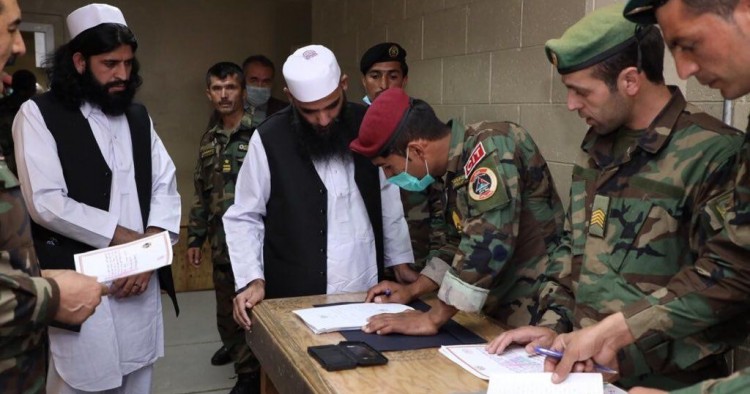While Afghanistan confronts a rapidly growing number of coronavirus cases and is having to cope with a stressed medical infrastructure, the country faces no letup in either political squabbling or insurgent attacks.
A deadline announced for ending the rift between President Ashraf Ghani and his rival Abdullah Abdullah ended on Friday without agreement. Prominent political figures had been meeting with both men in hopes of bridging their differences and preventing the formation of parallel governments. There had been some hope of succeeding after the two camps recently reached an agreement on the composition of a 21-member team chosen to conduct future peace talks with the Taliban. But then the Taliban announced its refusal to deal with a delegation it labeled as unrepresentative.
There remained, nevertheless, some optimism that the peace process was still on track after a Taliban delegation broke new ground by visiting Kabul for talks with the Ghani government over a prisoner exchange. The Feb. 29 agreement between the U.S. and Taliban, negotiated without the Kabul government’s concurrence, called for the immediate freeing of up to 5,000 Taliban. Anxious to have intra-Afghan talks move forward and quiet opposition politicians, Kabul reluctantly began to release screened Taliban prisoners in increments of 100 to a total of 1,500. Conspicuously absent were a group of prized prisoners the Taliban had demanded be among the first freed. An irate Taliban promptly broke off further prisoner release talks with the Ghani regime, asserting that the Doha agreement had been violated.
The U.S.’s deal with the Taliban seems threatened from another direction as well. According to the agreement, while the Taliban pledged not to attack American facilities as troops prepared to depart Afghanistan, no promises were made to curtail the war against government security forces. To fend off the Taliban in their unrelenting attacks countrywide, government fighters have remained heavily reliant on American airpower. The continued willingness of the U.S. to provide the needed tactical support has led the Taliban to declare that the Doha accord had been breached. While neither side is inclined to allow an agreement in which both are so heavily invested to fall apart, prospects for peace in Afghanistan appear as distant as ever despite all the recent diplomatic activity.
Marvin G. Weinbaum is MEI's Director for Afghanistan and Pakistan Studies.
Photo by National Security Council of Afghanistan/Handout/Anadolu Agency via Getty Images
The Middle East Institute (MEI) is an independent, non-partisan, non-for-profit, educational organization. It does not engage in advocacy and its scholars’ opinions are their own. MEI welcomes financial donations, but retains sole editorial control over its work and its publications reflect only the authors’ views. For a listing of MEI donors, please click here.













